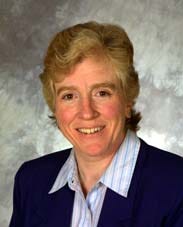The 1990s
In the 1990s, more women moved into positions of power, and, although the relationship of that to me is not easy to define, my life changed in countless ways.
The 1990s were a time of great transition for the world and for me. We witnessed the breakup of the Soviet Union, the re-unification of Germany, the liberation of Nelson Mandela, and the end of apartheid in South Africa. Bombs struck the World Trade Center, tore through the Oklahoma City Federal Building, and destroyed our embassies in Kenya and Tanzania.
Women played prominent roles in destabilizing the status quo in the 90s. 1992 became known as the Year of the Woman, not because women achieved equality but because the U.S. Senate went from having two women to six—a 300% increase (Thirty years later only a quarter of Senators are women—at this rate we should reach parity in 2052, when I’m 97 years old. I can’t wait!).
Two prominent women entertainers came out in this decade: Melissa Etheridge with the release of her Yes, I Am album, and Ellen DeGeneres with a Time magazine cover with the caption, “Yep, I’m Gay.” Anita Hill testified before Congress about being sexually harassed by Supreme Court nominee Clarence Thomas, and Monica Lewinsky confided in Linda Tripp about her sexual relationship with then President Bill Clinton. Janet Reno became the first woman U.S. Attorney General, Madeleine Albright became the first woman Secretary of State, and Carly Fiorina became the CEO of Hewlett-Packard, the first woman to head a Fortune 100 company. The second wave of feminism that began in the 60s finally started to show promise in the 90s.
While the firsts for women inspired me, the 90s were also a destabilizing time in my life. I entered the decade restless for something I couldn’t name. I yearned for change, but didn’t know what kind of change I wanted, and certainly didn’t expect that I’d turn everything upside down to find out.
In 1991, I attended a church service at the Unitarian Universalist (UU) church in Flint, Michigan and, much to my surprise, found a faith community, something I’d been missing since college when I left Roman Catholicism. I fell head over heels in love with this faith and it didn’t take me long to decide to enroll in seminary to become a UU minister. This was not received well at home, however. As the daughter of a UU minister, my partner Anne could not abide the thought of becoming her mother, a UU minister’s wife. Her resistance to my plans, my growing need to live my life more openly as a lesbian, and my enthusiasm for my newfound faith gave me the strength I needed to end our relationship, as difficult as that was for both of us.
Entering seminary meant leaving my job at Henry Ford Health System, a place I had been for 10 years, my longest employment to date. Due to budget cuts, I was able to successfully negotiate a buy-out, so that meant I left with money in my pocket--money I used to study Spanish and visit Mayan ruins in Guatemala, and then enroll in school, this time in Chicago.
It didn’t take me long to remember, however, that I’m not an academic, so I didn’t really like school that much. When I reconsidered the time, commitment, and money it would take to become an ordained minister, I realized I didn’t have it in me. I think that’s why I hold UU ministers with such esteem today. It’s no easy path. By the time winter break arrived, I was ready to be thankful for the experience and put it behind me.
And, as things happen, as soon as I did that, another door opened. I became a partner in a new computer training business, TRIAD Consulting. Computers had been my avocation since I started playing with them in the 1980s and now they became my career.
In a convoluted way, leaving seminary led to my becoming a writer. My business partner and I co-authored a ton of software books for Sybex, a leading computer book publisher--you know, those giant software tomes, like Mastering Microsoft Office, that made excellent door stops—25 titles or more by the time I stopped writing them in the mid-2000s (it’s surprising how easy it is to lose count)—each averaging 800-1200 pages. Phew!
Through those years, I received a crash course in technical writing, editing, book production, and the publishing industry--a world I knew nothing about before submitting my first chapters. I certainly don’t regret all the things I learned, but I never want to relive the incessant 4 am wake-up calls to meet end of day deadlines. Thank god our editor was three time zones away on the West Coast. Those precious three hours saved me countless times.
Despite the dramatic transitions in my life during the 1990s—from my new faith community to my relationship, my job, and ultimately to a new career path—I can only identify three accidental mentors who entered my life in this decade. I must wonder if I was just too busy to notice.
Next post:






It takes courage to chase your dreams and make changes in you life.
Well, I learned some things I didn't know about you! (not that I professed to know everything!) Cliffhanger for the last three!!